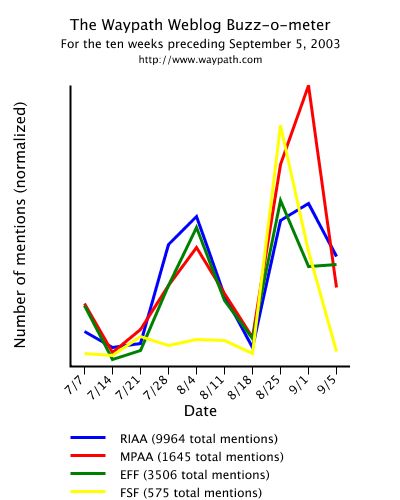Remember that open letter to WIPO regarding a meeting on open source issues?
A meeting was initially planned, but due to vigourous pressure from the US administration, it seems the meeting is no longer on track.
This is sad because from strong intellectual property laws stem the right to do whatever you want with this intellectual property. Including licensing it under an open source licence.
Lois Boland, director of international relations for the U.S. Patent and Trademark Office, said that open-source software runs counter to the mission of WIPO, which is to promote intellectual-property rights.
The mission of WIPO is to promote the protection of intellectual property throughout the world through cooperation among States and, where appropriate, in collaboration with any other international organization. Licensed IP, even under the GPL is indeed protected, thanks to the various IP legislation everywhere, harmonized under WIPO or WTO treaties.
This is not p2p file-sharing, this is legitimate licensing of one’s own IP under the terms one chooses. Especially considering the interest developing, and not so developing nations, have shown in considering open source code, WIPO should do the right thing and promote intellectual property and not be lured into considering IP as a generic item of trade.
[thanks Brightblue]
[Update: Oh.. Lessig is not amused.]
[Update2: Slashdot picked it up. It’s great that this story is making waves…]

